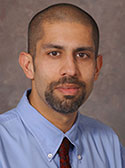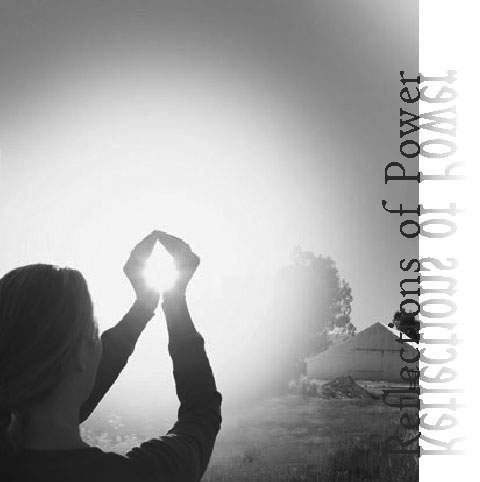![]()
RELFLECTIONS OF POWER
By Lavjay Butani

What truly is power? A much sought after 'commodity', for sure, and one in pursuit of which wars and many crimes more abhorrent than that have been committed repeatedly over the centuries. In the language of physics, power is defined as the rate at which work is performed, in mathematics it is an exponentiated number, while in statistical parlance, power refers the probability that a statistical test will reject a false 'null hypothesis'. Very technical and specialized, yet very precise meanings. However, when it comes to personal power or human power, all bets are off. Reading the following quotations and noting how different and varied they are, I am led to ask myself: what truly is power?
Sir Francis Bacon: 'Knowledge itself is power'
Noah Webster: 'Power is always right, weakness always wrong'
Friedrich Nietzsche: 'Wherever I found a living creature, there I found the will to power'
Machiavelli: 'People cannot make themselves secure except by being powerful'
Mahatma Gandhi: 'Power is of two kinds. One is obtained by the fear of punishment and the other by acts of love. Power based on love is a thousand times more effective and permanent then the one derived from fear of punishment'
Janet Hagberg in her book, Real Power, gives a somewhat different take to the concept of power, imparting a spiritual meaning to it, while at the same time also expounding on a more utilitarian view of power. At a practical level, power can be defined as the ability to influence people, not to manipulate them mind you, but to influence them so as to bring out the best in everyone and enabling all to achieve their maximal potential. These are the very same attributes that we need in a leader. Thus to me, power is the ability to be a good leader. Outlined very nicely is the basic premise-that success (or maybe one should use the term happiness and peace) comes from within ourselves and our own incredibly strong characters; that each and every one of us has the power and the strength to lead and to be powerful) by being good and caring human beings. 'Leadership always comes back to the issue of character, of deep foundational values. ..you will not find followers without caring, connecting and creating…We can only lead effectively by enabling others to maximize their contribution.' This brings to mind the principle based paradigm that spiritual and other visionary leaders ask us to follow in our day to day lives-they talk about how inner growth and development are the essence of 'leadership'. We have to know ourselves and to be emotionally intelligent to be able to care for others enough to lead them into their own maximal potential and help them attain happiness-the so called Resonant Leadership.
At a more spiritual level, power means embracing the 'abundance mentality,' that is recognizing the 'infiniteness of power' so that we can move from being a person who focuses on symbols of success (promotions, money, cars etc) to higher levels of power, focusing more on the good of all than our own self achievement (power based on reflection, wisdom and a purpose in life). These stages of power are developmental stages, much like life is, reflecting movement or maturation from birth to death (the ultimate realization) going through the stages of childhood and adolescence. This is also exactly what Hindu philosophy teaches us about when it describes the 4 stages of life-from the student, the householder, and the retired person, to the ascetic. With age and time, comes wisdom, the wisdom to detach ourselves from material objects and become even more powerful. What ultimately determines how far we proceed with self-realization is how courageous we are to stand up for the right things in life and fight against injustice. And we can do this only once we have faced, embraced and 'integrated' our shadows into who we are. However, very much like Hindu philosophers have emphasized, Hagberg also points out that one doesn't necessarily need to renounce the world or even worldly pleasures to live a 'complete' life (a life of integrity). Spirituality can and does pervade all aspects of our life-and one can achieve peace even being surrounded by life in its chaos (and not necessarily become a hermit) as long as our heart is in the right place and we follow moral principles. 'The quality of the person is what determines true leadership, not whether he or she is in a position of authority.'
One last concept on power that resonated with me was the concept of 'Integrity' (being whole) that Hagberg discusses-the importance she gives of not only 'embracing' and 'accepting' our own selves, our flaws and strengths, but finally of 'integrating' them into who we are, feeling comfortable with these 'flaws,' and retaining a sense of humor about these-laughing about them to ourselves and others. This is something that many of us struggle with so very much-being overtly critical of ourselves at times and trying to overanalyze ourselves. As the Buddhists tell us, we need to welcome this 'emptiness' inside ourselves and not be afraid of it but also not to question it nor to try to 'understand' it. Just be.



